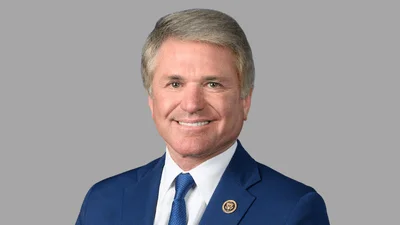Wondering how much money drug companies spend on continuing education for doctors- and who gets all the support?
Eli Lilly & Co. thinks you deserve to know and lists its grants on its website. Pfizer plansto post similar details soon. Despite Pfizer's move, it is among the 15 companies getting a lettertoday from Sen. Chuck Grassley, R-Iowa, asking what they're doing to "meet the public'sdemand for transparency."
If your company does not have any plans in place, the letter says, "please explain whynot."
"Transparency builds both trust and accountability," says Grassley, ranking member ofthe Senate Finance Committee, which oversees Medicare and Medicaid. "I'm asking otherpharmaceutical organizations to follow Lilly's lead and show the public there's nothing to hide."Alan Coukell of the Prescription Policy Project, a non-profit that has taken aim atconflicts of interest in medicine, says: "Sen. Grassley is a bear on this issue. He has multipleongoing investigations. He did a big report last year on continuing medical education and thepotential for the medical industry to bias (programs) they're funding."
The drug industry is famous for spending vast sums on promotion, an estimated $30billion in 2004, according to a study last year in The New England Journal of Medicine.Companies are barred by law, however, from using educational grants - for conferencesthat doctors must attend to keep pace with scientific advances - to promote their own drugs ordevices, experts say. Nevertheless, the finance committee report cited two instances of abuse. Tosettle those claims of improper drug promotion, Warner-Lambert paid $430 million in 2004 andSerono labs paid $704 million in 2005.
Companies can follow the rules and still spend lots of money, judging from an analysis ofLilly's website. In one quarter last year, Lilly spent nearly $20 million on educational grants,much of it going to conferences for medical specialties that rely on the company's biggestproduct lines: neuroscience, endocrinology and oncology.
"You give where you earn," says David Rothman of Columbia University, a study authorand the Policy Project's associate director.
Alan Breier, Lilly's chief medical officer, says Lilly was not pressured to act by publicopinion or Congress and plans to expand the program worldwide. "We started (postingeducational grants) last year as part of our transparency agenda, to build trust and confidence(among patients)," he says. "In 2004, we were the first company to voluntarily post our clinicaltrials and our clinical trials data. We found it was something that patients and doctorsappreciated and embraced."
Cathryn Clary, a Pfizer vice president, says her firm is "quite proud of the funding andsupport we provide" and plans to post this year's first-quarter data soon after the quarter's end.Clary says Pfizer executives are discussing what to disclose next, adding that the ease ofaccessing data on the Internet has greatly increased demand. "We're all struggling with howmuch to reveal," she says. "Stay tuned."









